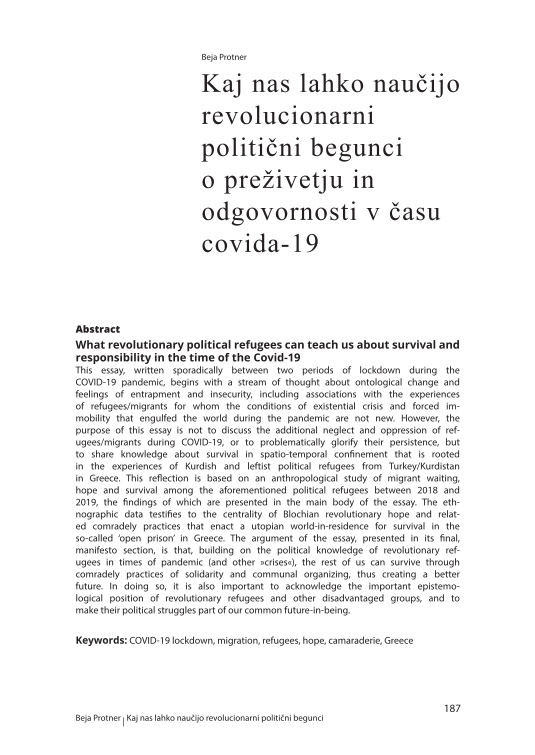This essay, written sporadically between two periods of lockdown during the COVID-19 pandemic, begins with a stream of thought about ontological change and feelings of entrapment and insecurity, including associations with the experiences of refugees/migrants for whom the conditions of existential crisis and forced immobility that engulfed the world during the pandemic are not new. However, the purpose of this essay is not to discuss the additional neglect and oppression of refugees/migrants during COVID-19, or to problematically glorify their persistence, but to share knowledge about survival in spatio-temporal confinement that is rooted in the experiences of Kurdish and leftist political refugees from Turkey/Kurdistan in Greece. This reflection is based on an anthropological study of migrant waiting, hope and survival among the aforementioned political refugees between 2018 and 2019, the findings of which are presented in the main body of the essay. The ethnographic data testifies to the centrality of Blochian revolutionary hope and related comradely practices that enact a utopian world-in-residence for survival in the so-called ‘open prison’ in Greece. The argument of the essay, presented in its final, manifesto section, is that, building on the political knowledge of revolutionary refugees in times of pandemic (and other »crises«), the rest of us can survive through comradely practices of solidarity and communal organizing, thus creating a better future. In doing so, it is also important to acknowledge the important epistemological position of revolutionary refugees and other disadvantaged groups, and to make their political struggles part of our common future-in-being.



